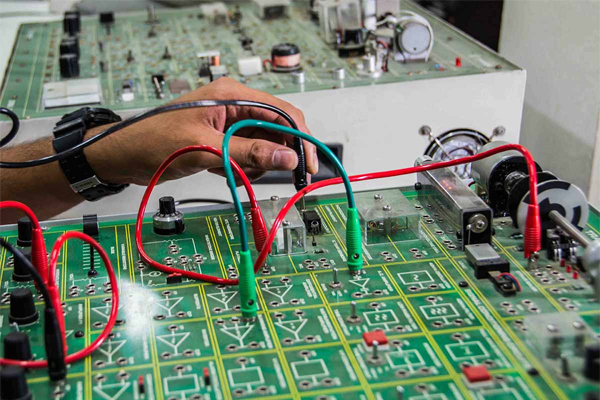



|
Tweet
Pin
It
|
Educational
To be an instrumentation engineer one need to have a graduate degree (B.E /B.Tech) or at least a diploma in engineering. One can also go for Diploma program after completion of his/her class 10th. Diploma holders can get direct admission into second year of engineering in the same stream in which they have completed their diploma. To be eligible for bachelor's degree course i.e. B.E or B.BTech, one must clear 12th std. board exam with at least 50% marks(60% for IITs) in the science stream with Physics, Chemistry and Maths as compulsory subjects. Those with B.E/B.Tech can further advance their studies by doing post graduate course M.E/M.Tech. Individuals with interests in research areas can pursue PhD after his/her post graduation studies for carrying out research works. One can do PhD in the following areas: Digital Signal processing, Monitor Control, Speech Processing, Censor Network, Intelligent Controls. The degree and postgraduate degree courses are offered by IITs, NITs, private and government engineering colleges.
Selection : Selection to the graduate courses ( B.E / B.Tech ) is based on merit i.e the marks secured in the final exams of 10+2 and through entrance exams. Entrance to the IIT's is through 'JEE' (Joint Entrance Exam) and for other institutions through their own separate entrance exams and other state level and national level exams. Apart from the IIT's, some other famous institutes also recognize JEE scores for selection. The national level exam AIEEE is also conducted for admissions in the NITs in India and many other prestigious colleges. Selection to the postgraduate courses ( M.E / M.Tech) in different universities is through an 'All India Combined Entrance exam' conducted by JNU, New Delhi, and to IIT's is through 'GATE'.
Duration : B.E/B.Tech courses are of 4 year's duration. The diploma courses are of 2-3 year's duration. Post Graduate course M.E/M.Tech is of 2 years duration.
Personal attributes
An instrumentation engineer need to have a sharp, analytical and practical mind and attention to detail. They should be able to grasp and adapt to new and changing concepts. Good communication skills are also important to communicate their ideas to others in their field. He should be good at organizing and solving problems. He may need to work under pressure and have the ability to keep calm during crisis. Along with various other personal attributes one must also have dedication and commitment towards the profession.
A successful engineer possesses not only an understanding of his area of concentration, but also a broad grasp of engineering in general.
Find it Useful ? Help Others by Sharing Online
Comments and Discussions |
Related
Career Options
|
|||
|
|